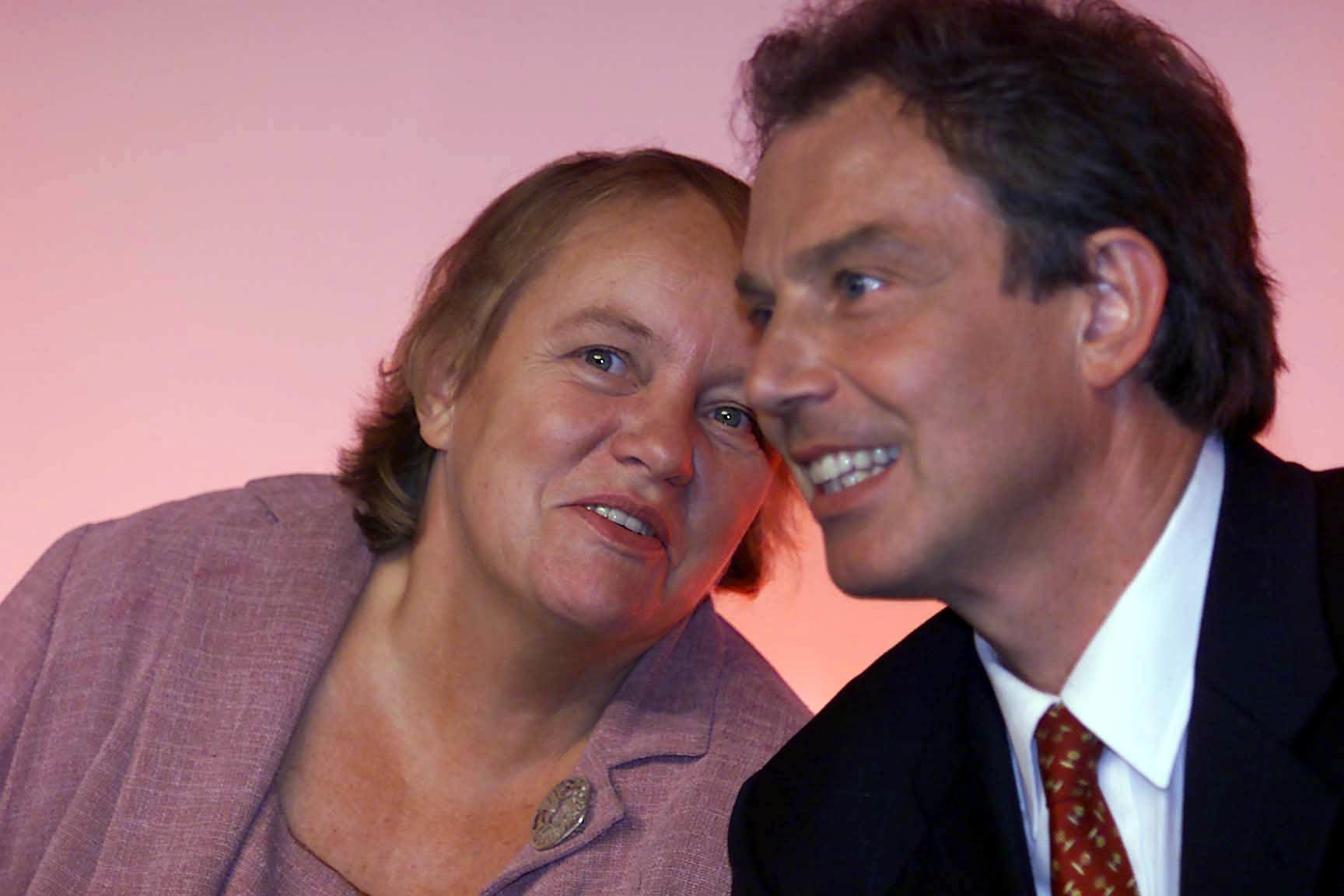Blair’s exasperation with Mowlam over drugs policy revealed
Files released to the National Archives show the former Northern Ireland secretary pressed to liberalise the laws on cannabis.

Your support helps us to tell the story
From reproductive rights to climate change to Big Tech, The Independent is on the ground when the story is developing. Whether it's investigating the financials of Elon Musk's pro-Trump PAC or producing our latest documentary, 'The A Word', which shines a light on the American women fighting for reproductive rights, we know how important it is to parse out the facts from the messaging.
At such a critical moment in US history, we need reporters on the ground. Your donation allows us to keep sending journalists to speak to both sides of the story.
The Independent is trusted by Americans across the entire political spectrum. And unlike many other quality news outlets, we choose not to lock Americans out of our reporting and analysis with paywalls. We believe quality journalism should be available to everyone, paid for by those who can afford it.
Your support makes all the difference.Prime minister Tony Blair became exasperated with Mo Mowlam over her determination to liberalise the drugs laws despite opposition from other senior government figures, according to newly released official papers.
In 2000, Mr Blair gave the former Northern Ireland secretary the job of chairing the committee responsible for co-ordinating the Labour government’s policy on drugs.
However, files released to the National Archives in Kew, west London, show she quickly became embroiled in a series of disputes with other leading figures, leading No 10 to warn ministerial discipline was breaking down.
The trigger was a report from the Police Foundation recommending that cannabis should be reclassified and that possession should not be an imprisonable offence.
Although the findings were rejected by the government, it prompted Ms Mowlam to write to home secretary Jack Straw urging him to look at “the costs, both social and financial, of a regulated market” in cannabis.
At the same time, she challenged the government’s drugs “tsar” – former chief constable Keith Hellawell – over his insistence cannabis should be treated as a “gateway” drug to more serious substances such as heroin or cocaine.
Liz Lloyd, a No 10 policy adviser, wrote to the prime minister warning him that Ms Mowlam’s confrontational approach was in danger of undermining the government’s whole approach to the issue.
“As ever, there are differences in the views taken by those in the lead on drugs and particular between those of Mo and those of Keith Hellawell,” she wrote.
“On the question as to whether cannabis is a gateway drug to heroin and other serious drugs the difference is particularly stark with Keith saying that it is, and Mo saying that it is not.
“The committee structure simply cannot work when the chair (Mo) takes a diametrically opposed view to one of the people on the committee (Keith) and uses that position to drive it through.
“It encourages other ministers also to go their own way. Both Jack and (health secretary) Alan (Milburn) now just plough on ahead as the committee has little authority.”
Mr Blair said he shared her frustration, but admitted there was little he could do while Ms Mowlam remained in post.
We can't deal with this whilst Mo remains. She just does her own thing ... we just have to manage it for the moment
In a handwritten note, he said: “Look: we can’t deal with this whilst Mo remains. She just does her own thing. But I back KH’s view and we just have to manage it for the moment.”
Ms Mowlam, who had survived a brain tumour, was one of the most colourful and well-liked figures in the Labour government following the Good Friday Agreement.
However her popularity was resented by some around Mr Blair who believed her role in the Northern Ireland peace process had been overstated and she struggled to find a new role after he moved her to the Cabinet Office in 1999.
In May 2000, Anji Hunter, one of Mr Blair’s closest aides, said they had been looking at a number of options, with the co-ordinating drugs role showing “the most promise”.
Ms Mowlam meanwhile indicated she would like to get out on the road visiting drugs rehabilitation centres and holding party meetings.
David Miliband, also working in No 10, suggested a “tell Mo tour” progressing round the country “in an almost Gladstonian way” – a reference to the 19th century Liberal prime minister.
“She would go round housing estates, community centres, local regeneration offices, public meetings, finding out what people really feel about our policies on the ground,” Ms Hunter wrote.
“The officials that accompany her would make constructive suggestions to each department on issues raised at these meetings. The tour would be accompanied by the use of modern technology, ie a Mo Website with her spending an hour a day answering emails.”